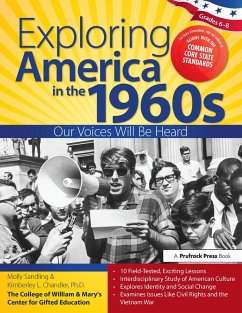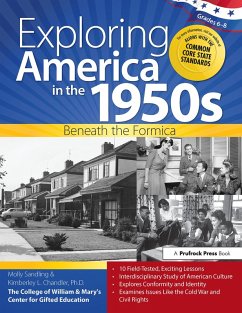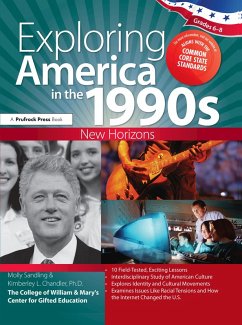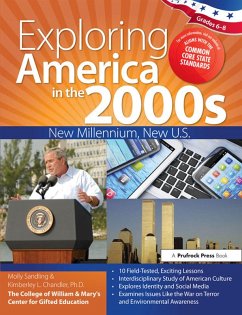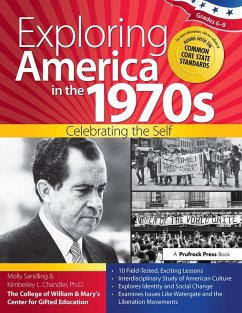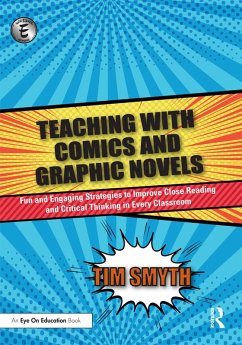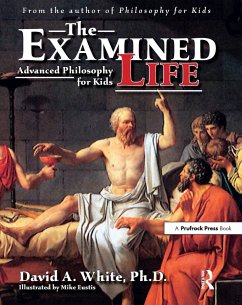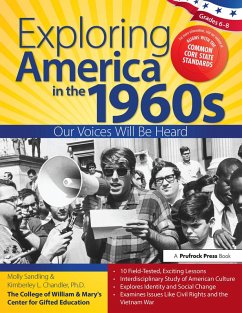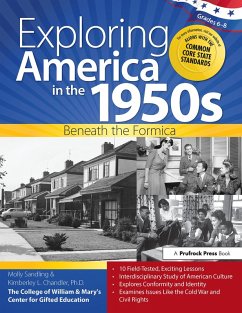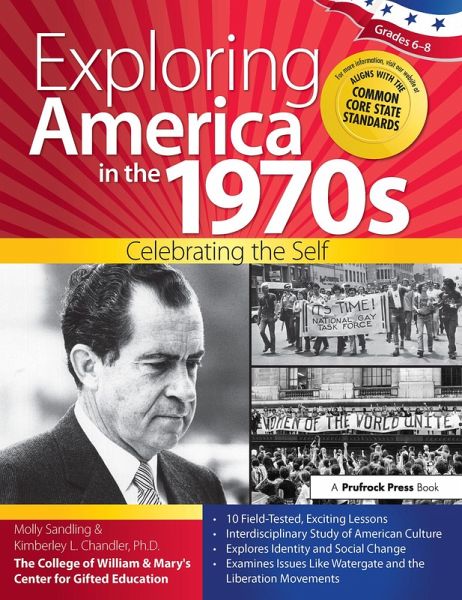
Exploring America in the 1970s (eBook, ePUB)
Celebrating the Self (Grades 6-8)
Versandkostenfrei!
Sofort per Download lieferbar
31,95 €
inkl. MwSt.
Weitere Ausgaben:

PAYBACK Punkte
16 °P sammeln!
Exploring America in the 1970s: Celebrating the Self is an interdisciplinary humanities unit that looks at literature, art, and music of the 1970s to provide an understanding of how those living through the decade experienced and felt about the world around them. Through the lens of "identity," it explores life in America and the myriad groups that coexisted in harmony and, often, with friction. Cultural movements like disco and the punk are examined alongside larger issues such as Watergate, post-Vietnam stagflation, and the birth of the women's liberation, Chicano, and gay pride movements.Th...
Exploring America in the 1970s: Celebrating the Self is an interdisciplinary humanities unit that looks at literature, art, and music of the 1970s to provide an understanding of how those living through the decade experienced and felt about the world around them. Through the lens of "identity," it explores life in America and the myriad groups that coexisted in harmony and, often, with friction. Cultural movements like disco and the punk are examined alongside larger issues such as Watergate, post-Vietnam stagflation, and the birth of the women's liberation, Chicano, and gay pride movements.
The unit uses field-tested instructional strategies for language arts and social studies from The College of William and Mary, as well as new strategies, and it includes graphic organizers and other tools for analyzing primary sources. It can be used to complement a social studies or language arts curriculum or as standalone material in a gifted program.
Grades 6-8
The unit uses field-tested instructional strategies for language arts and social studies from The College of William and Mary, as well as new strategies, and it includes graphic organizers and other tools for analyzing primary sources. It can be used to complement a social studies or language arts curriculum or as standalone material in a gifted program.
Grades 6-8
Dieser Download kann aus rechtlichen Gründen nur mit Rechnungsadresse in A, B, BG, CY, CZ, D, DK, EW, E, FIN, F, GR, HR, H, IRL, I, LT, L, LR, M, NL, PL, P, R, S, SLO, SK ausgeliefert werden.




